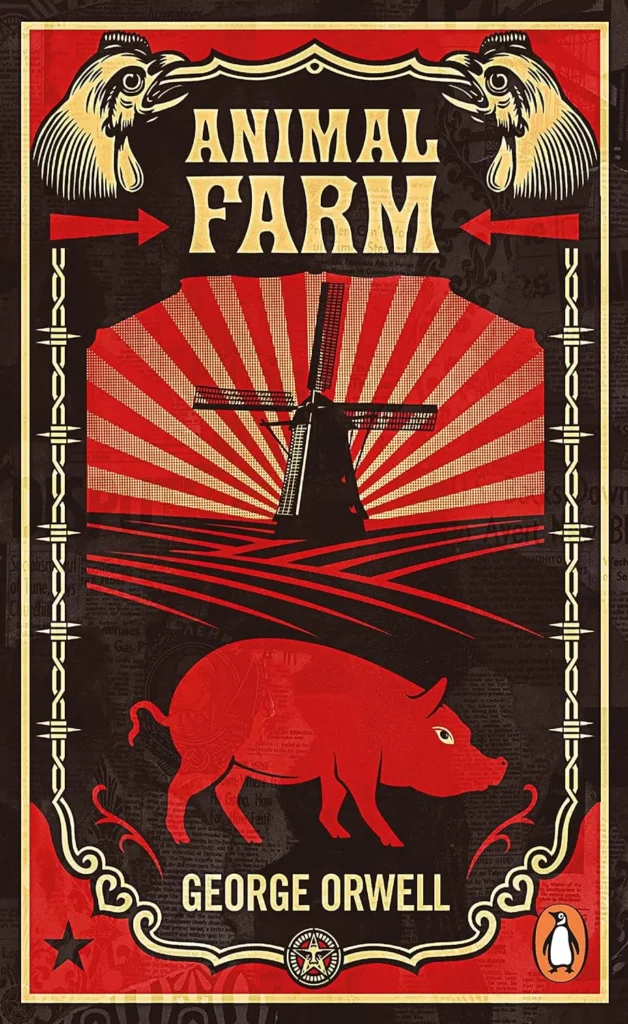
The Book in 3 Sentences
- Animals on a farm rebel against their human owner for a vision of equality.
- Pigs, leading the rebellion, gradually betray the revolution’s ideals.
- “Animal Farm” serves as a critique of totalitarianism, highlighting the corrupting influence of power and the potential for those in authority to become oppressors.
Impressions
How Did I Discover It?
My colleague at work suggested “Animal Farm” when he learned I was reading another book by the same author. After reading it, I now share his sentiment — it has become my favorite book by Orwell too.
Who Should Read It?
This book can be recommended to a wide range of readers, especially:
- Students studying political science or history: The book serves as a powerful allegory for political events and revolutions, making it a valuable read for those interested in understanding the dynamics of power and governance.
- Readers interested in political allegories and satire: If someone enjoys stories that use allegory and satire to comment on political systems and human nature, “Animal Farm” is a classic example.
- Those exploring themes of power and corruption: The novel delves into themes of power, corruption, and the consequences of unchecked authority, making it relevant for readers interested in these topics.
How the Book Changed Me
- Critical Thinking: The novel encourages me to think critically about political systems, leadership, and the abuse of power. It prompts reflection on how societies can deviate from their initial ideals and how individuals can be manipulated by those in authority.
- Vigilance Against Totalitarianism: The book has heightened my awareness of the corrupting influence of power by cautioning against blind obedience to authority figures, fostering a healthy skepticism. Especially, the novel’s exploration of totalitarianism provides insights into the erosion of individual freedoms, contributing to a better understanding of the dangers posed by unchecked authority.
- Awareness of Propaganda: Orwell’s exploration of propaganda in the book has raised my awareness about the manipulative tactics used by those in power to control information and shape public opinion, leading me to become a more discerning consumer of information in my own life.
- Survival Instincts: Finally, the book has taught me a valuable lesson on recognizing the need to abandon a failing endeavor for self-preservation. The animals’ experience underscores the importance of knowing when to leave a deteriorating situation, emphasizing the crucial survival skill of recognizing and acting upon the signs of impending danger. Orwell’s allegory encourages me to prioritize self-awareness and make decisive choices to protect myself when faced with adversity.
My Top 3 Quotes
- “Napoleon announced that there would be work on Sunday afternoons as well. This work was strictly voluntary, but any animal who absented himself from it would have his rations reduced by half.” (This reflects Napoleon’s manipulation of language to give the illusion of choice while imposing a form of control and coercion, showcasing the erosion of the animals’ original ideals of equality and freedom on the farm.)
- “Whenever anything went wrong it became usual to attribute it to Snowball. … It seemed to them as though Snowball were some kind of invisible influence, pervading the air about them and menacing them with all kinds of dangers.” (This illustrates the power of propaganda and the manipulation of perception to control and maintain authority.)
- “The creatures outside looked from pig to man, and from man to pig, and from pig to man again; but already it was impossible to say which was which.” (This symbolizes the warning about the potential for those in power to betray their original ideals, emphasizing the corrupting influence of authority.)